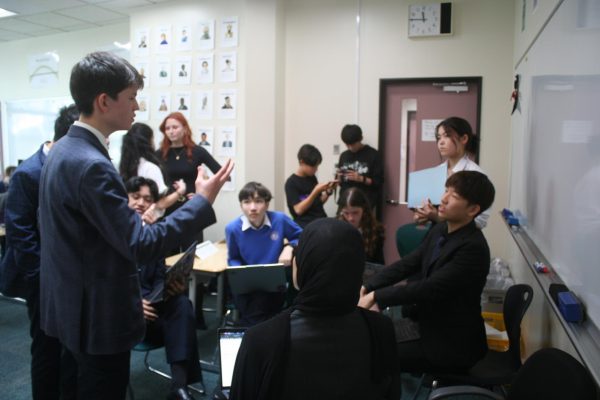Where Is Home?
November 17, 2018

Imagine standing on a subway train, when out of your peripheral vision, you feel hundreds of eyes shifting their gaze towards you. You look up and realize that people around you have been staring at your clothes, your hair, your eyes–everything that represents your identity. Glancing around the train car, you catch somebody mouthing the word “gaijin.”
Being labeled as different starts from physical appearance. Several ASIJ girls explained that they often are labeled as “gaijin,” or outsiders when they are out in public. For instance, this occurs at restaurants when they are given an English menu despite being able to speak Japanese. Many waiters automatically assume from physical appearance, somebody’s ability to speak, or more importantly, be Japanese. Emily, a sophomore, describes the word as offensive, stating that “just because [someone] looks different, it doesn’t mean they can’t be Japanese.”

What does it mean to be bicultural? For many students at ASIJ, having a diverse cultural background goes far beyond a dictionary definition. Sophomore Jeti defined biculturalism as “adapting to two different societal norms and learning to embrace them.” Despite this encouraging interpretation, learning to be proud of one’s nationality does not come easy for bicultural kids. For many ASIJ students, having multiple backgrounds means never fitting into a society, never having a place called “home.” Subtle judgments such as the train ride, or the restaurant experiences can have an enormous impact on how one feels accepted into their environment.
So, how have ASIJ students learned to embrace their unique backgrounds? Having a community of people who can relate to one another has allowed them to connect and form strong bonds with others that share a similar perspective. Home for them is not a certain country–it’s not a physical place. Home is an environment consisting of individuals with common experiences. Home is made up of people who understand and accept their uniqueness.




















